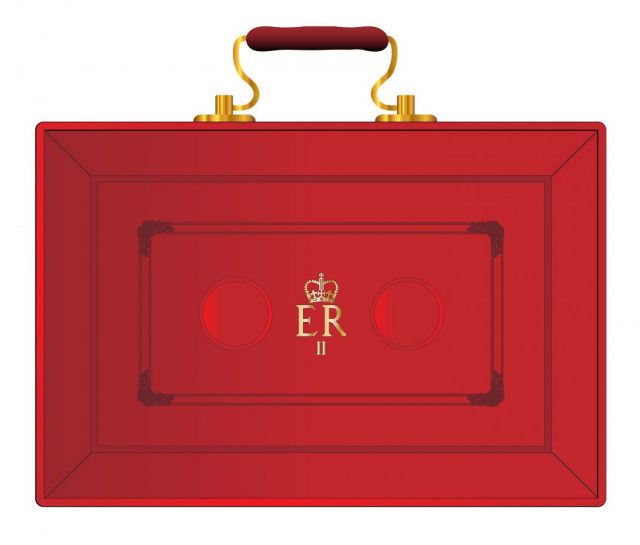Newly installed chancellor of the exchequer Rishi Sunak announced a £30 billion fiscal stimulus package in his first Budget on Wednesday in a bid to counter the impact of the coronavirus outbreak, ending a decade of austerity and significantly increasing borrowing.

The Budget announcement came after an emergency interest rate cut to 0.25 per cent by the Bank of England before the markets opened earlier in the day.
The Budget will cause little cheer for contractors, however, as entrepreneur’s relief was cut, planned cuts in corporation tax were shelved and controversial IR35 reforms set to be expanded to the private sector in April were set in stone. Tax relief on pensions was expanded for high earners, however.
In a move that should benefit most workers, the National Insurance threshold will be raised from £8,632 to £9,500 from next month, giving 31 million people a tax cut, with the average worker being around £100 a year better off.
Calls by self-employed trade bodies to create an “emergency fund” to help contractors and the self-employed with financial support in the event that they cannot work due to being quarantined or falling ill seem to have fallen on deaf ears, as the chancellor announced a £1 billion package to support the “financial security” of workers that only went as far as guaranteeing the self-employed with rapid access to universal credit and Employment and Support Allowance: a measure that will be welcomed by workers in the “gig economy”, but will be unlikely to be of much assistance to contractors losing hundreds of pounds a day in fee revenue.
In a similar move for employed workers, Statutory Sick Pay (SSP) will be payable from the first day of sickness absences, to encourage self-isolation and discourage people suffering from COVID-19 from going into to work out of financial necessity. Businesses with fewer than 250 employees will have the cost of SSP refunded by the government in full for the first 14 days per employee, and HM Revenue & Customs has been asked to “scale up” its Time To Pay service to allow taxpayers more time to pay outstanding bills.
For businesses, a Coronavirus Business Interruption Loan Scheme has been launched to support SMEs, and 900,000 shops, cinemas, restaurants and music venues will receive 100 per cent relief on their business rates in the 2020-21 financial year.
Mr Sunak acknowledged the coronavirus outbreak would cause “temporary disruption” to the economy but said the government would take action to mitigate the impact.
“We will rise to this moment. We will get through this together. This Budget delivers security today, but lays the foundations for prosperity tomorrow,” he told MPs.
He also pledged that the National Health Service would have however many “millions or billions” required to tackle the illness. “Whatever it takes, whatever it costs, we stand behind our NHS,” he said.
The chancellor was cheered when he announced that both the “reading tax” and “tampon tax” would be abolished: from January 1 2021, VAT will no longer be chargeable on female sanitary products, following Britain’s departure from the European Union, and additionally VAT will not be charged on ebooks and digital publications from December 1 this year, “just in time for Christmas”.

Fuel duty will remain frozen “for one further year”, contrary to expectations proceeding the Budget announcement, and there will be no increase to the duty on spirits, beer, cider or wine, for only the second time in twenty years.
Pensions tax relief was enhanced, ostensibly to encourage doctors and GPs to work more hours, although the move will benefit all high earners. The threshold at which pension contributions start to be taxed will be raised from £110,000 to £200,000, at a cost of £2 billion to the exchequer.
In one of the few revenue-raising measures in the budget, entrepreneur’s relief, which Boris Johnson had said before the Budget was helping to make the “staggeringly rich” even richer, is being scaled back, with the lifetime limit reduced from £10 million to £1 million, raising £6 billion. Sunak called the tax break “expensive, ineffective and unfair”.
Significant capital and day-to-day spending increases were also announced, with investment across all regions of the UK as part of the government’s commitment to “level up” the economy. However, although the chancellor announced a review of the government’s fiscal rules, he did not break them. He said this Budget would be “delivered within the fiscal rules of the manifesto but with room to spare”. The “fiscal framework” is to be reviewed at the next Budget in the Autumn.
It was also confirmed that IR35 Off-Payroll rules will be brought in as scheduled on April 6, as was implied by the earlier Treasury review into their implementation.
The pound lost earlier gains against the dollar during the Budget announcement, trading at $1.2916 against the dollar, down from the day’s high of $1.2976 it hit following the Bank of England’s emergency rate cut earlier on Wednesday morning.
11th March 2020.









